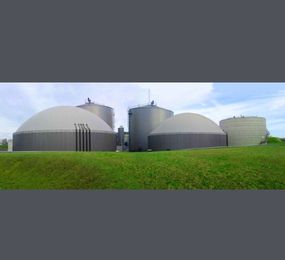Jet fuel has a high energy density compared to its weight, which has made commercial flight possible. We are dependent on this type of fuel in aviation since there are now no other practical alternatives for swiftly moving large crowds of people over extremely great distances. In order to reduce aviation's carbon emissions, which are predicted to more than triple to more than 8 billion passengers by 2050, we must take action. SAF is one method to do this.
Sustainable aviation fuels, a biofuel used to power airplanes, have properties similar to conventional jet fuel but a lower carbon footprint.
Airlines, manufacturers, and airports are intensifying their efforts to reduce their environmental impact as part of the global aviation industry's commitment to reduce greenhouse gas emissions. SAFs are a key solution, and the market is anticipated to soar.
Initiatives for sustainable fuel are being focused on from all angles across the continents. One obvious thing is that the aviation industry targets a net-zero ecosystem by the middle of this century. So it shouldn't come as a huge surprise that the market for sustainable aviation fuel will be very lucrative by the end of this decade.
Biofuels have the potential to alter how people throughout the world perceive aviation. It is a healthy, renewable resource with numerous potential advantages. The commercial aviation sector can run entirely on biofuels made from organic matter with further improvement in both aircraft design and biofuel technologies. This adjustment will improve the planet's future and provide a welcoming atmosphere for all.
At the Advanced Biofuels Forum, Eva C. van Mastbergen will be speaking on: • Introduction to Sustainable Aviation Fuel (SAF), • Recent developments in the SAF market, • Outlook to meet the aviation industry's 2050 net zero commitment, • Activities of SkyNRG to build up SAF capacity and fuel the new era in aviation. Eva is a Project Lead at SkyNRG and she’d be joined by other experts and stakeholders in discussions that could shape the future of the advanced biofuels market.
















